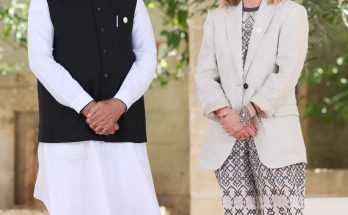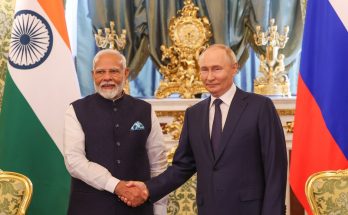In a veiled critique of China’s Belt and Road Initiative (BRI), India’s External Affairs Minister S. Jaishankar underlined the need for better connectivity in the region, pivoted around respect for national sovereignty and the “centrality of interests of Central Asian states.”
“Connectivity projects should respect the sovereignty and territorial integrity of Member States and respect international law,” Dr Jaishankar said at a virtual meeting of the SCO Council of Heads of Government that was held to firm up the trade and economic agenda of the eight-nation Eurasian grouping. Chinese Premier Li Keqiang hosted the meeting since the Council of Heads of Government is chaired by China. The minister’s remarks indicated that promoting rules-based inclusive connectivity will be a major theme of India’s chairmanship of SCO and the SCO summit New Delhi will host around mid-2023. This was the first meeting of the SCO since India took over the grouping’s rotating presidency in Samarkand on September 16, 2022.
India chose not to support the joint communique reference to China’s Belt Road Initiative, which all other countries affirmed support for. India has had rejected BRI on grounds that a vital part of BRI, the China-Pakistan Economic Corridor, passes through parts of Pakistan Occupied Kashmir (PoK), which amounts to violating the country’s sovereignty.

At the SCO summit in Samarkand held on September 16, India had repudiated BRI and refused to join other SCO nations supporting it. Prime Minister Narendra Modi, who represented India at the summit, had also criticised Pakistan for not giving India “full transit rights” to Central Asia.
“I underlined that we need better connectivity in the SCO region built on centrality of interests of Central Asian states. [This] will unlock the economic potential of this region in which Chabahar port and the International North South Transport Corridor could become enablers,” Dr. Jaishankar said in a tweet.
In contradistinction to BRI, Dr. Jaishankar projected Iran’s Chabahar port and the International North South Transport Corridors (INSTC) that India is a part of, as a viable alternative to enhance trade in Eurasia and to promote rules-based connectivity.
A joint communique highlighted that all countries except India “reaffirmed their support for the ‘Belt and Road’ initiative”, “including the work to promote the alignment of the ‘Belt and Road’ construction with the construction of the Eurasian Economic Union”.
The central thrust of Jaishankar’s remarks was on enhancing trade and investment among SCO member countries. “Our total trade with SCO Members is only $141 billion, which has potential to increase manifold. Fair market access is to our mutual benefit and only way to move forward,” Dr. Jaishankar said. The meeting was also attended by Russian Prime Minister Mikhail Mishustin, Pakistan Foreign Minister Bilawal Bhutto Zardari, Russian Prime Minister Mikhail Mishustin, and the Prime Ministers of Kazakhstan, Kyrgyzstan, Tajikistan and Uzbekistan
The minister also highlighted the food crisis being faced by the region in the wake of the Russian invasion of Ukraine. He underlined that India will “foster greater cooperation with SCO Member States on countering the food crisis”, particularly with millet grains.
The SCO joint communique criticised the “imposition of unilateral economic sanctions not endorsed by the UN Security Council”, and underlined the sanctions “adversely affect” the global economy, without naming U.S. and European Union sanctions on Russia.
Author Profile

- Manish Chand is Founder-CEO and Editor-in-Chief of India Writes Network (www.indiawrites.org) and India and World, a pioneering magazine focused on international affairs. He is CEO/Director of TGII Media Private Limited, an India-based media, publishing, research and consultancy company.
Latest entries
 India and the WorldJuly 9, 2024Defying West, India sets $100 billion trade target with Russia
India and the WorldJuly 9, 2024Defying West, India sets $100 billion trade target with Russia India and the WorldJuly 5, 2024India at SCO: Takes swipe at Pakistan for cross-border terror, pushes alternative to BRI
India and the WorldJuly 5, 2024India at SCO: Takes swipe at Pakistan for cross-border terror, pushes alternative to BRI India and the WorldJune 14, 2024Modi’s Day 1 in Italy: Bonding with Britain, France
India and the WorldJune 14, 2024Modi’s Day 1 in Italy: Bonding with Britain, France India and the WorldJune 13, 2024G7 summit in Italy: Modi to showcase India as leader of Global South
India and the WorldJune 13, 2024G7 summit in Italy: Modi to showcase India as leader of Global South






